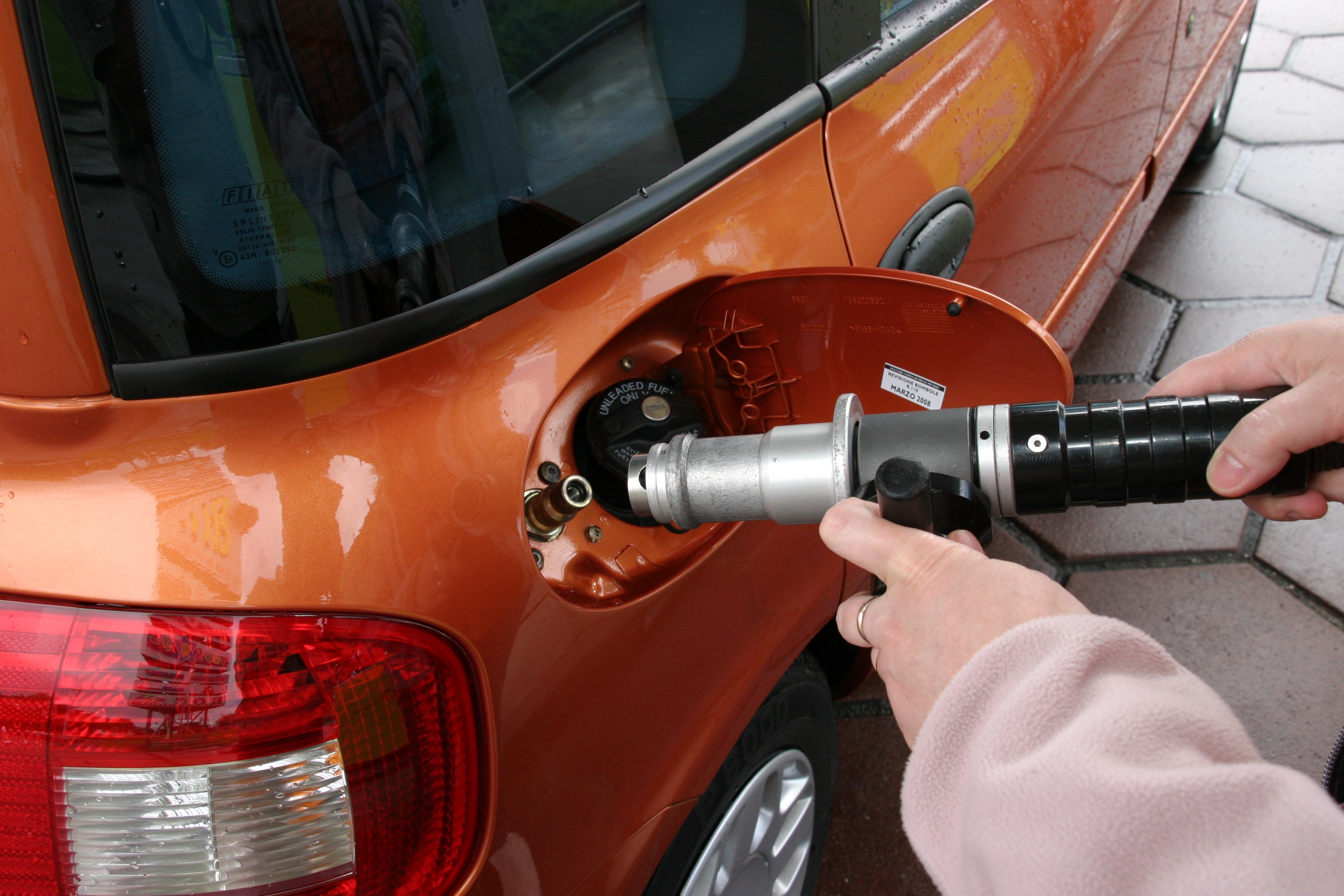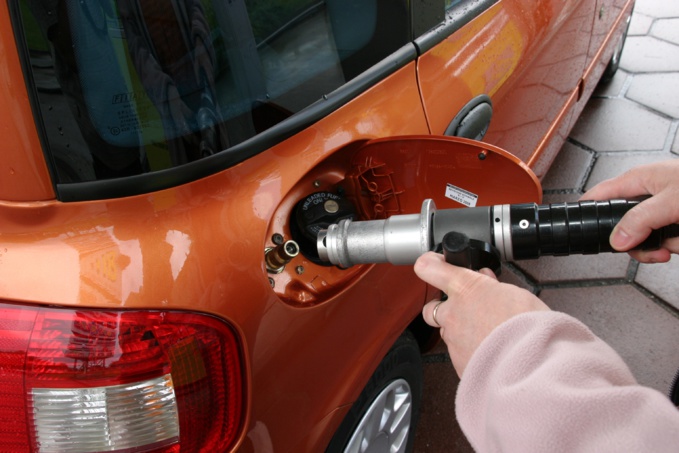In the course of operations to unblock a refinery in Fos-sur-Mer, protesters threw various objects at police and burned tires, reported in the local prefecture. In response, police used tear gas and water cannons. According to the prefecture, seven police officers were injured. For their part, representatives of the CGT also reported "several victims" harmed by shock batons.
"Other refinery will also be released in order to avoid shortage of petrol at petrol stations of the country", - promised the French Prime Minister Manuel Valls.
Refineries in Normandy, Brittany, the Auvergne and the north of France are still blocked. Transport Minister Alain Vidalies denied the shortage of gasoline in an interview for ITélé.
"There are 12 000 filling stations in our country, of which only 20% have difficulties with gasoline," - he said.
At the same time, he acknowledged that record levels of fuel consumption have been recorded in the last days in France.
"Everyone is talking about the shortage, but in fact, we have broken all records of consumption in the last three days. In some sectors, fuel consumption has increased by 500%. People and businesses are stocking up for the future ", - reported Vidalies to the National Assembly.
However, hyped people in Paris cleaned up most petrol stations, and long queues lined up in the suburbs. Many gas stations across France have been short of fuel since 19 May.
The largest French oil company Total has 2,200 filling stations across the country. On Tuesday, 188 of them were closed, and 513 experienced fuel shortages. Delivery of fuel involved around 800 tanker trucks – normally, this requires just 350 vehicles.
"The situation is serious for our company since we experience difficulties due to low oil prices; we need all of our enterprises," - said Total’s CEO Patrick Pouyanné at the annual shareholders' meeting, calling the French not to panic and stop buying gasoline up.
French President Francois Hollande regards blocking refineries and fuel depots as a "minority strategy." In an interview on France Culture, President condemned such action.
The Head of State said he was not going to ignore what is happening, or to believe that those who have legitimate demands, do not deserve respect.
"But I also cannot accept what today has grown into a block based on a strategy approved by minority", - said Hollande.
The country has had to turn to its fuel reserves.
"The fuel reserves of the country are used for two days under full state control," - admitted on Wednesday morning President of the French Union of Petroleum Industry (UFIP) Francis Duseux.
According to the authorities’ calculations, France's strategic reserves of fuel would last for 90 days.
"In the worst situation, the country will hold out for three months," - according to the portal 20 Minutes.
UFIP’s Head acknowledges that the situation is tense, but hastens to calm anxiety among the population:
"Whoever sells the oil products, should also have a reserve equivalent to three months' consumption volume", - quotes the portal.
Meanwhile, Minister of Labor Myriam El Khomri does not intend to make concessions.
"We respect freedoms of labor unions, but should remain solid, as it comes to blocking refineries. Such actions have nothing to do with the concepts of "right to strike" and "the right on a meeting", - said the minister at a meeting of the National Assembly, adding that the legislative process in the framework of the labor reform will continue.
source: bloomberg.com
"Other refinery will also be released in order to avoid shortage of petrol at petrol stations of the country", - promised the French Prime Minister Manuel Valls.
Refineries in Normandy, Brittany, the Auvergne and the north of France are still blocked. Transport Minister Alain Vidalies denied the shortage of gasoline in an interview for ITélé.
"There are 12 000 filling stations in our country, of which only 20% have difficulties with gasoline," - he said.
At the same time, he acknowledged that record levels of fuel consumption have been recorded in the last days in France.
"Everyone is talking about the shortage, but in fact, we have broken all records of consumption in the last three days. In some sectors, fuel consumption has increased by 500%. People and businesses are stocking up for the future ", - reported Vidalies to the National Assembly.
However, hyped people in Paris cleaned up most petrol stations, and long queues lined up in the suburbs. Many gas stations across France have been short of fuel since 19 May.
The largest French oil company Total has 2,200 filling stations across the country. On Tuesday, 188 of them were closed, and 513 experienced fuel shortages. Delivery of fuel involved around 800 tanker trucks – normally, this requires just 350 vehicles.
"The situation is serious for our company since we experience difficulties due to low oil prices; we need all of our enterprises," - said Total’s CEO Patrick Pouyanné at the annual shareholders' meeting, calling the French not to panic and stop buying gasoline up.
French President Francois Hollande regards blocking refineries and fuel depots as a "minority strategy." In an interview on France Culture, President condemned such action.
The Head of State said he was not going to ignore what is happening, or to believe that those who have legitimate demands, do not deserve respect.
"But I also cannot accept what today has grown into a block based on a strategy approved by minority", - said Hollande.
The country has had to turn to its fuel reserves.
"The fuel reserves of the country are used for two days under full state control," - admitted on Wednesday morning President of the French Union of Petroleum Industry (UFIP) Francis Duseux.
According to the authorities’ calculations, France's strategic reserves of fuel would last for 90 days.
"In the worst situation, the country will hold out for three months," - according to the portal 20 Minutes.
UFIP’s Head acknowledges that the situation is tense, but hastens to calm anxiety among the population:
"Whoever sells the oil products, should also have a reserve equivalent to three months' consumption volume", - quotes the portal.
Meanwhile, Minister of Labor Myriam El Khomri does not intend to make concessions.
"We respect freedoms of labor unions, but should remain solid, as it comes to blocking refineries. Such actions have nothing to do with the concepts of "right to strike" and "the right on a meeting", - said the minister at a meeting of the National Assembly, adding that the legislative process in the framework of the labor reform will continue.
source: bloomberg.com



















